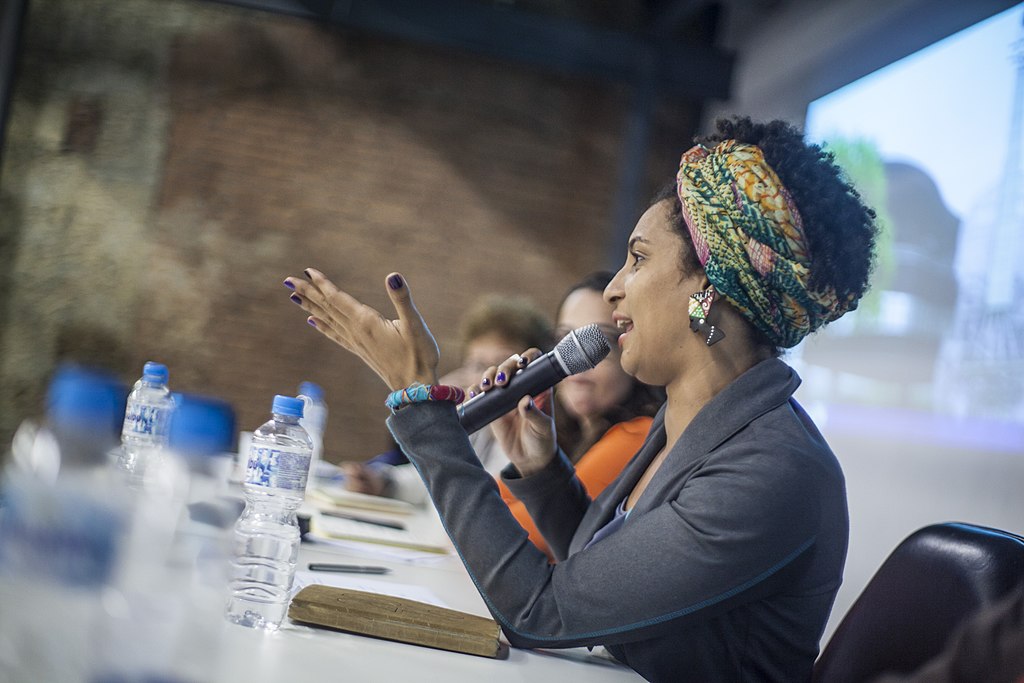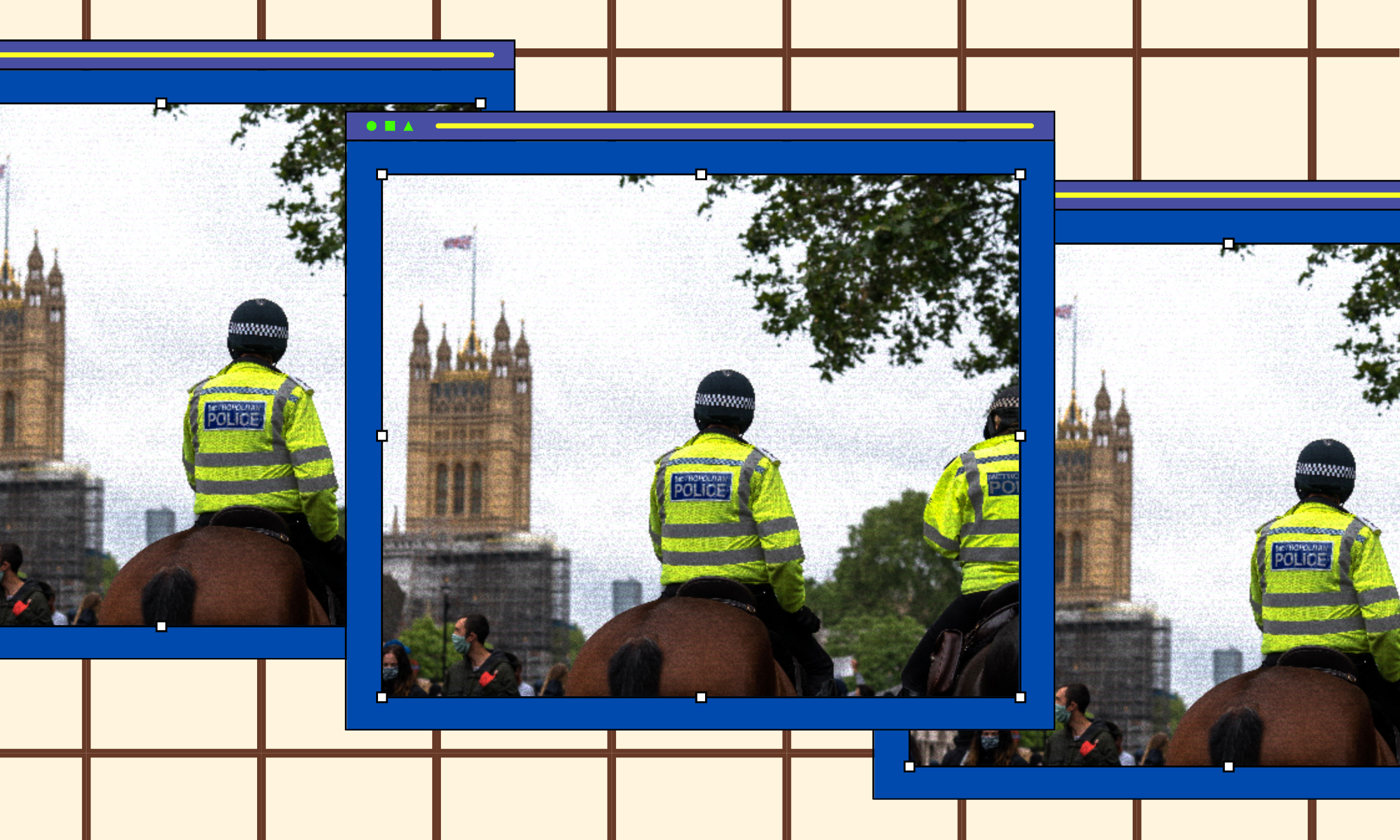
Last week, while leaving an event for the empowerment of black women, Marielle Franco and her driver Anderson Pedro Gomes were assassinated in the middle of Rio de Janeiro. Franco was a 38 year-old queer woman of colour and a rising civil-rights activist in Brazil. According to investigators, Franco was shot four times in the head using bullets purchased by the Federal Police in 2006. The security commission in Rio has failed to make any comments but many are calling the act an attack on democracy.
“Favelada” is a term used to describe those who grow up marginalised in low-income communities in Brazil. Since Franco’s death, many have used this term to describe how her past shaped her identity as a progressive politician. Franco grew up in the Complexo da Maré, a cluster of 16 favelas in Rio. Like many women growing up in favelas across Brazil, Franco became a single mother at the age of 18 and was forced to leave her foundation course. Finding part-time work at a daycare, Franco resumed her studies in Social Science two years later, supported by a full scholarship.
During Franco’s time at university, the debate around safety in Rio grew as many innocent people (usually young and black), were being shot during confrontations between drug traffickers and the police. Following the death of a good friend of Franco’s by a stray bullet during a shoot-out, she began speaking out about the violence she was encountering. Around this time Franco married her first love, Monica. Franco received her Master’s in Public Administration and began working for the Commission of Human Rights in Rio, where she worked on the violation of rights by the Brazilian federal police.
“Franco represented what many wanted to see more of in Brazilian politics: a feminist woman of colour, and someone born and raised in a favela”
With a strong following, Franco was elected as councillor in 2016, with the Brazilian Socialism and Liberty Party (PSOL). Franco represented what many wanted to see more of in Brazilian politics: a feminist woman of colour, a single mother and someone born and raised in a favela. Despite having the largest population of people of African descent outside of Africa (almost 56 million, which makes up more than half of the population), out of 513 federal deputies in the Brazilian congress, only 24 identify as black. Franco, therefore, was capable of finally breaking the status quo, and PSOL was planning on putting her forward to run as vice-governor of Rio later in the year.
Franco was highly driven towards finding solutions for problems which the political elite ignored. More recently, she had begun openly opposing unofficial militias, which are made up of serving and former police officers, and who were playing an increasing role in violence in the country. On Tuesday, in reference to the killing of a 23 year old man, Franco had tweeted:
Mais um homicídio de um jovem que pode estar entrando para a conta da PM. Matheus Melo estava saindo da igreja. Quantos mais vão precisar morrer para que essa guerra acabe?
— Marielle Franco (@mariellefranco) March 13, 2018
“Another killing of a youth which could end up on the PM [military police] tally. Matheus Melo was leaving church. How many more will have to die before this war ends?”
Although conversations about police brutality are usually centred around the United States in international media, the highest rate of killings occurs in Brazil. There are 120 million fewer citizens in Brazil than in the US, yet 4,224 people died at the hands of police in 2016, a 26% rise compared to the previous year. The majority of these killings occur in the state of Rio, in low-income communities with a predominantly black population. Worse yet, Rio is currently under military supervision, meaning that there are armed forces patrolling the streets in order to “maintain” peace. This is particularly concerning in a country with a history of military dictatorship.
“Many have claimed that Franco’s murder has reactivated Brazil’s fight”
Brazilians are now mourning the loss of a brilliant political leader, and at the same time Franco has become a symbol of what it means to be Brazilian today. Tens of thousands took to the streets across the country to celebrate Franco and condemn police brutality this week, and the hashtag #MariellePresente has blown up across Brazil. Many have claimed that Franco’s murder has reactivated Brazil’s fight: a fight, amongst many things, against military intervention in the state of Rio. This is also a fight for the end of the war against drugs which victimises thousands of young black people every year, and a fight against institutional racism and sexism.
Brazil has been shaken over the past few years with a series of corruption investigations associated with kickbacks at state-run firms. While convictions have been made, many politicians are still under investigation. Political polarisation has also further been entrenched with the impeachment of former President Dilma Rousseff in 2016. Brazilians are not only frustrated with their political decision-makers but are also slowly recovering from one of the worst recessions in at least a century. Many Brazilians feel under-represented by candidates who often refuse to speak about issues related to violence, race and misogyny.
Marcelo Freixo, a good friend and mentor of Franco explains: “Whoever killed Marielle thinking they would silence Marielle, transformed her into a symbol and allowed for Marielles to spring up all over the country.“
As Brazil moves forward, Marielle Franco, her name and her cause cannot be forgotten.








